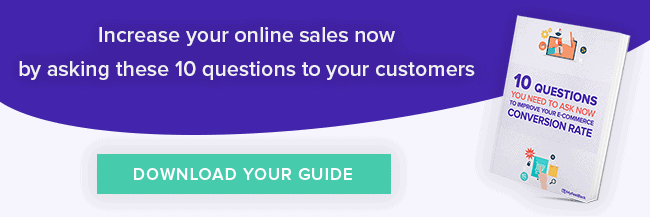According to the last year’s PwC’s Global Data and Analytics Survey, 62% of executives rely more on their experience than data to make decisions. Most executives know that data is power but they still cling to a status quo that relies on making decisions based on their intuition and past experiences. As Michael Feindt, researcher...
According to the last year’s PwC’s Global Data and Analytics Survey, 62% of executives rely more on their experience than data to make decisions. Most executives know that data is power but they still cling to a status quo that relies on making decisions based on their intuition and past experiences. As Michael Feindt, researcher at CERN and professor at Data Science Academy, simply puts it, “the best person, even if he has lots of experience, cannot handle more than four influencing factors, but a machine can calculate and make the optimal decision mathematically.”
Why should you stop guessing?
People have always preferred to put their faith in mystical forces when confused. While intuition has its place in decision making, it is not, and should never be, a substitute for reason. Being completely severed from data analysis, intuition will more likely lead you to a disaster than success. While there are numerous studies which say that decision making based on your gut feeling is the right way to go, the truth is completely different.
The more data you have, the less you should rely on your intuition and more on analysis.
While the above is true for all executives, it’s truest for marketers. As a marketer, your job is to create the complete customer journey – following and nurturing them as they grow from leads into fully-grown customers. Unfortunately, not all of them will stay with you for the whole time. Some will leave you at the very beginning and others will drop off someway along the way. It’s up to you to determine what went wrong and the answer you come up with will differ from case to case.
In one of our earlier case studies, we have shown how real-time analytics can be used to recover abandoned quotes and increase your profits.
Now, we would like to cover another important aspect of growing your revenue – understanding your customers. If you consider that no two of them are the same, their intentions will be different, as well. So, how do you align your efforts to meet them? By guessing? Or by asking?
Why should you start asking?
What’s there to ask? Start by making a list of your most pressing questions which you would like to have answered. When you have defined the questions, it’s time to get some answers. The best way to do so is through smart surveys.
Most of your customers have their opinions about your brand, your offering and most importantly, their view on their overall customer experience.
Before launching your customer survey, make sure that you have done your customer segmentation. For example, customers who abandoned their cart and those who completed a purchase are different and should be treated as such. Sending a different set of questions to different customer groups will provide you with accurate and meaningful insights that will allow you to spot problems or opportunities before it’s too late.
What next?
Once you have sent your customer surveys, you will probably have tons of valuable data to sift through. But don’t stop there. Instead, put that data into action and use it to sell more:
#1 Increase your conversion rate
If your customers tell you that a certain part of their customer journey is complex, simplify it. Do they find it hard to see the benefits of your offering? Improve your copy and back it up with images and videos. Every customer who visits your website, does so with a certain goal. By asking for their feedback, you will be able to do a better job of fulfilling that goal. And they will be more likely to choose you instead of your competition.
#2 Differentiate yourself from your competitors
Most likely, some of your lost customers will say that they chose a competing solution over yours. More importantly, they will tell you why. Once you know where you fall short in regards to your competitors, you will be able to focus on those parts of your offering and close the gap. Additionally, happy customers will tell you exactly why they’re happy. Using that information and building on those reasons, you will have a significant pool of happy and loyal customers that will act as your brand ambassadors.
#3 Advertise your happy customers
By nature, people want to protect themselves from making wrong decisions. As more and more marketers make their decision based on data, ordinary people turn to online comments and product reviews, such as those on Facebook pages. A study conducted by G/O Digital determined that 80% of Facebook users would be more likely to purchase from a brand if they saw positive user reviews on their page. Additionally, 41% said that the most important factor in engaging with a brand is seeing their ratings and reviews.
Use the positive reviews to your advantage by posting it on your home page, and product reviews on your product or service pages.
Long story short, guessing what your customers want or need, and making your decisions based on those guesses will surely get you somewhere. However, making your decisions based on your customer feedback will get you on direct flight to your goal. If you have a decision to make, don’t rely on your instincts. Instead, rely on your customers to give you the answers you need.












